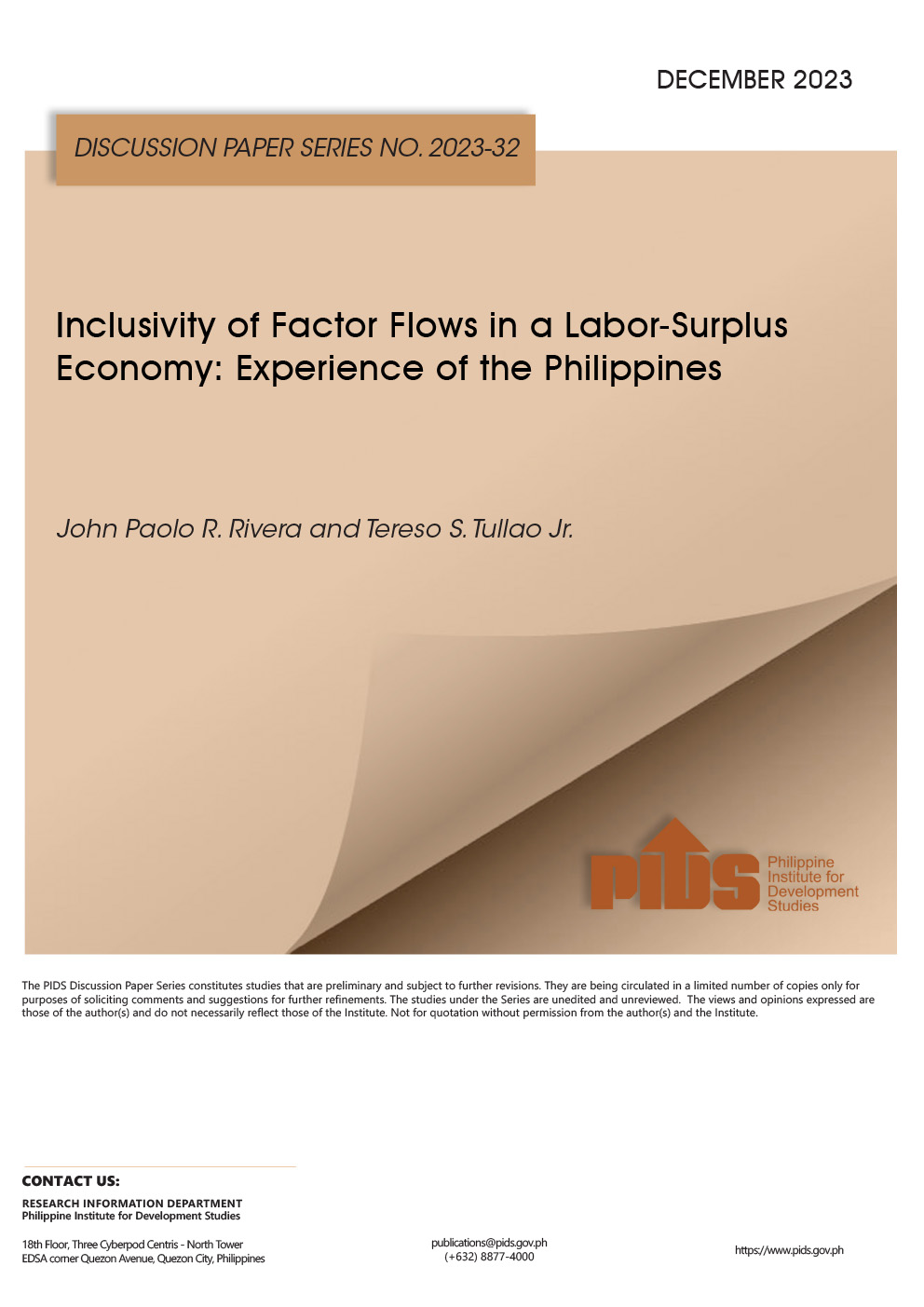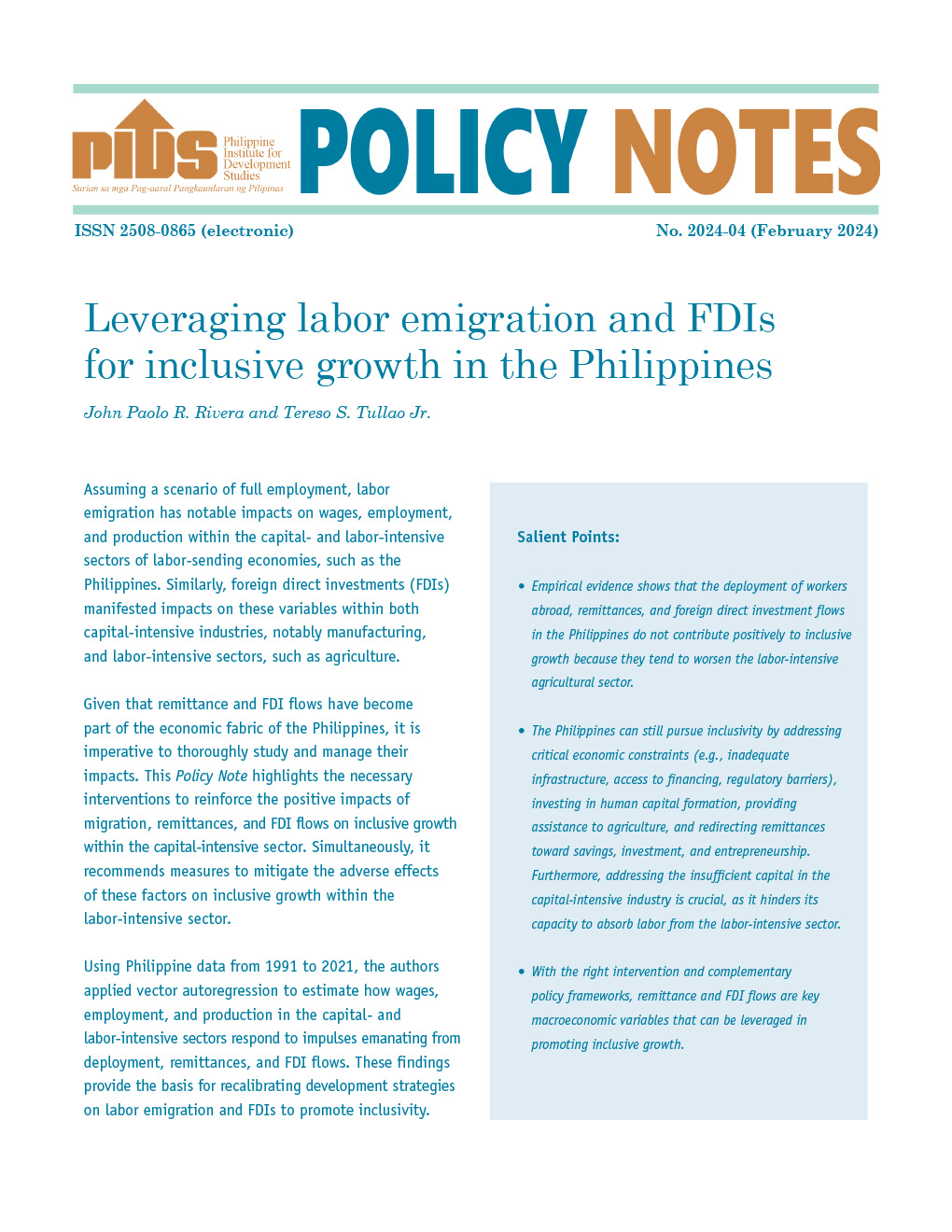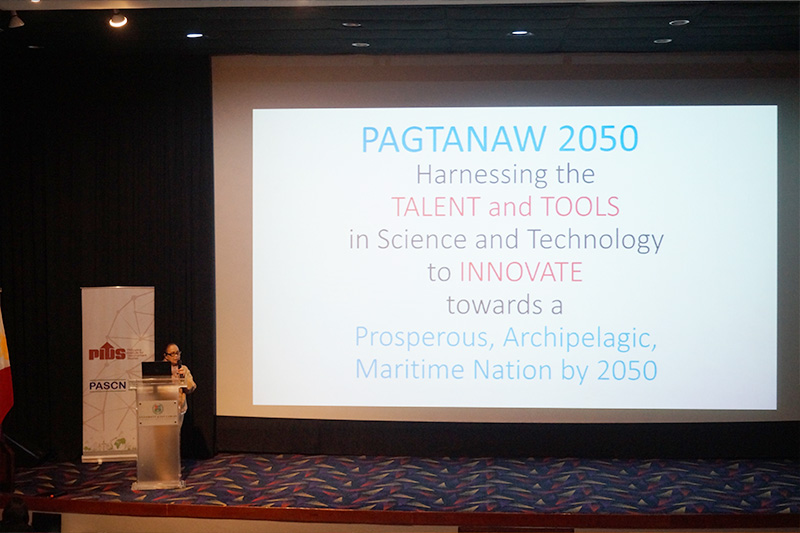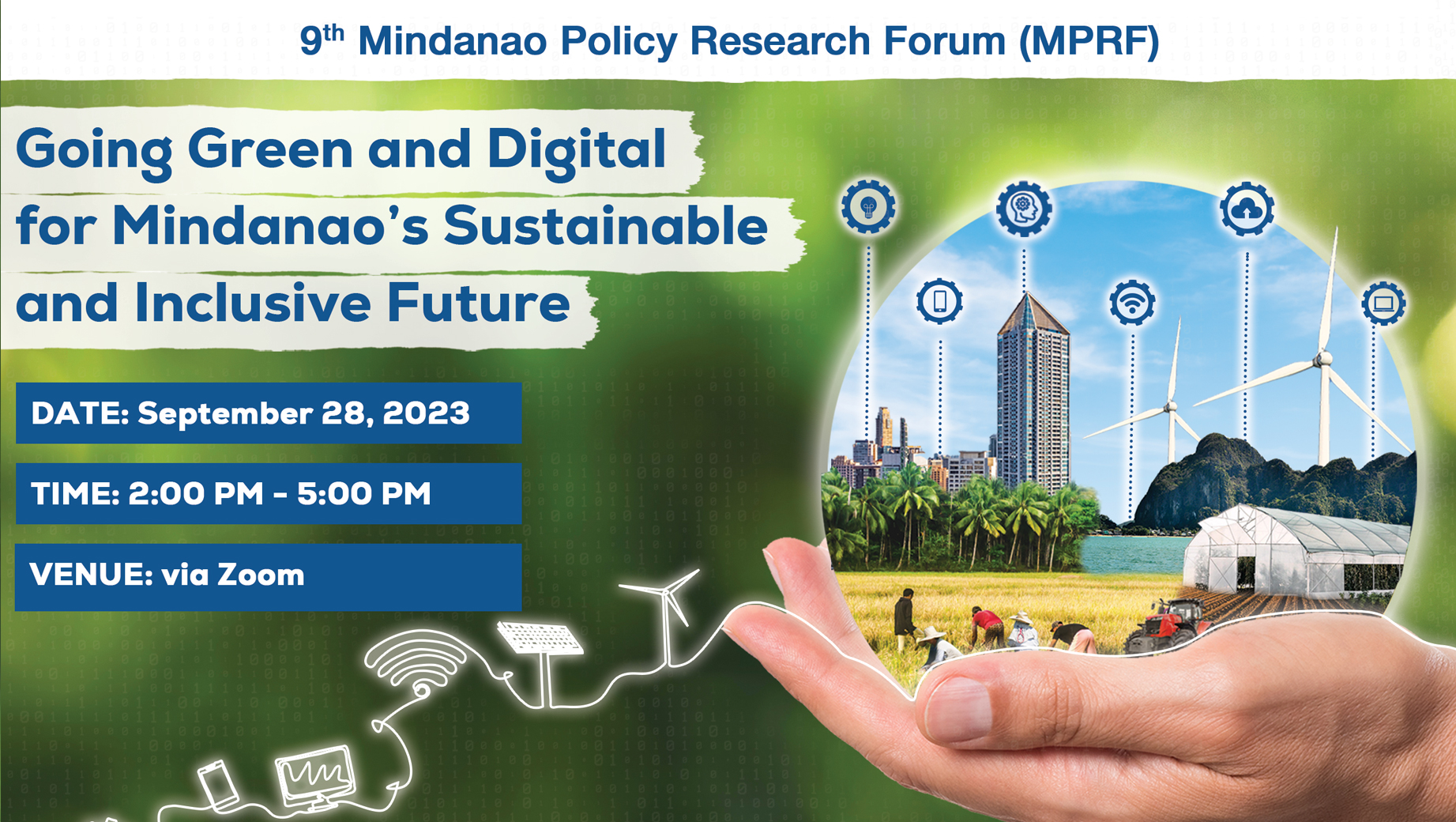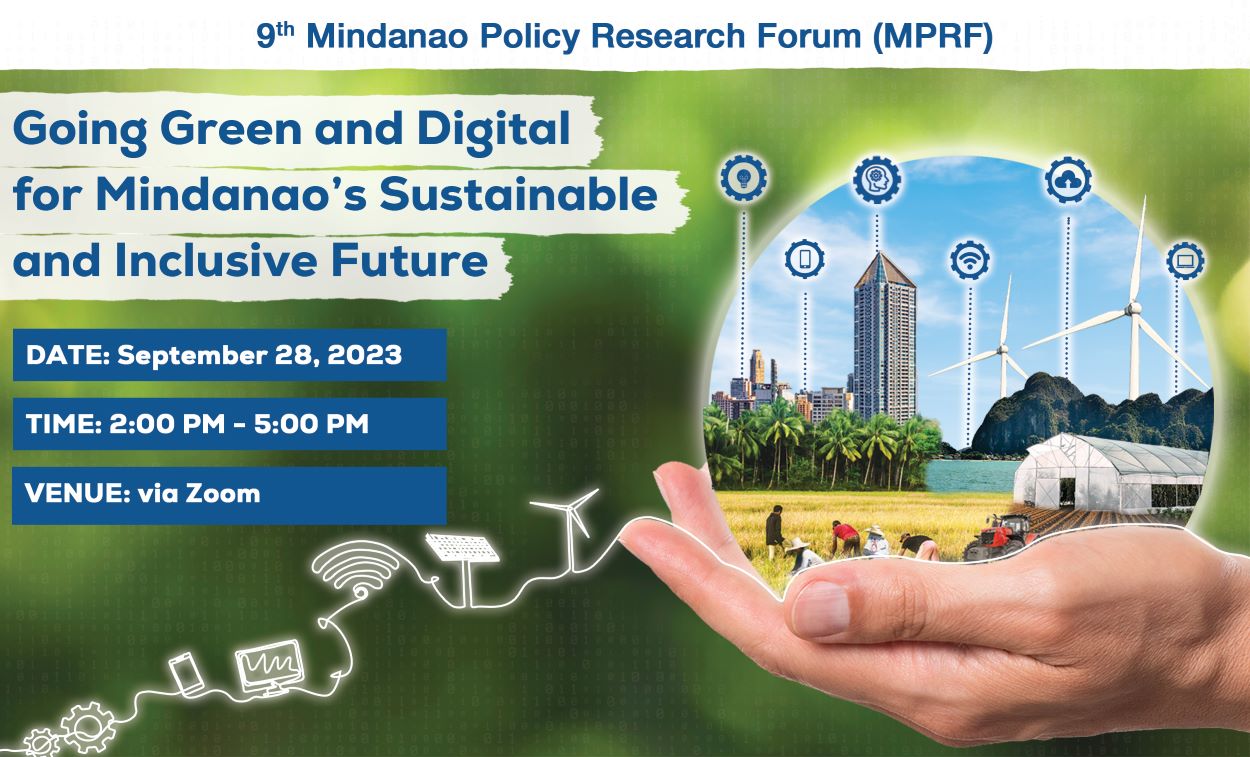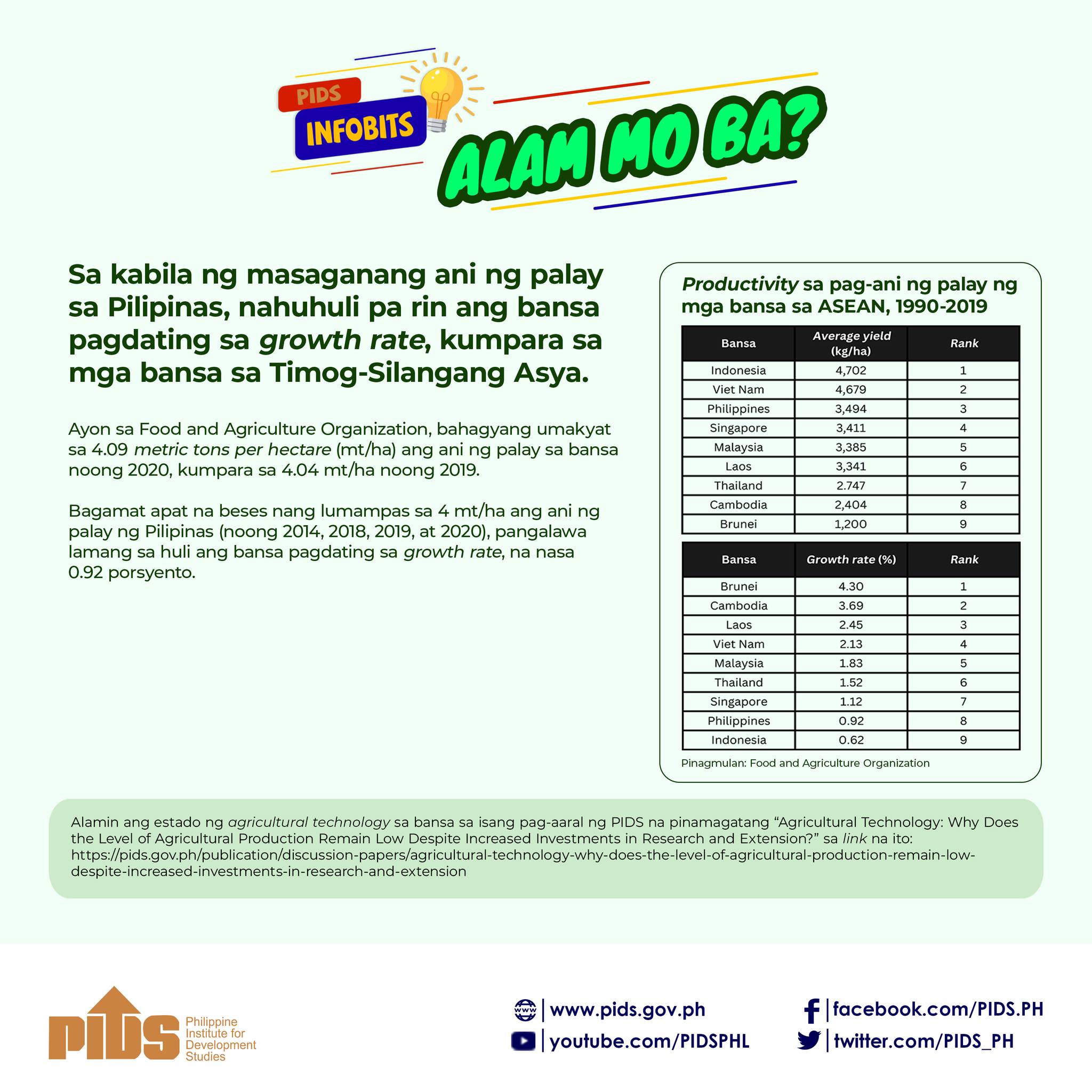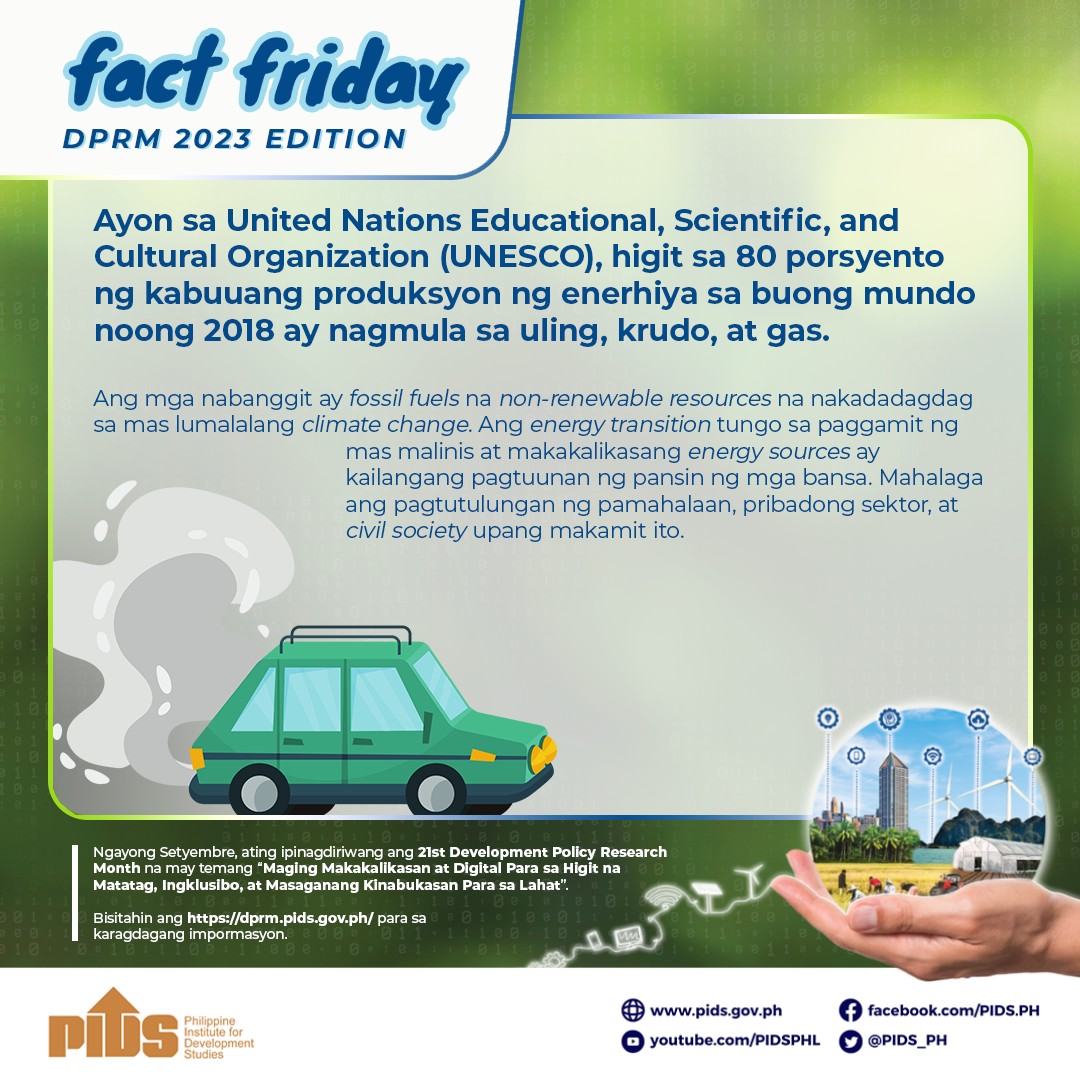The Mindanao Development Authority (MinDa) believes that the Philippines can export rice, and Mindanao can serve as the primary gateway for the staple to go global, particularly if local farmers are given the means to improve their productivity.
In a statement issued by the Philippine Institute for Development Studies (Pids), MinDa Chairman Emmanuel F. Piñol said farmers in Mindanao need to adopt new farming technologies, particularly for cultivating rice, to increase productivity.
“We are the only area in the country that is not often hit by typhoons compared to Northern Luzon. This is our advantage. [Also,] our soil is more fertile than that of Luzon,” Piñol said.
However, Piñol said investments in agriculture remain low in the Philippines. The government has failed to provide farmers with sufficient water, good seeds, fertilizers, machinery and capital.
These, he said, are the same ingredients that will make the country self-sufficient in rice. He said self-sufficiency can be achieved by providing good-quality seeds (hybrid and inbred), sufficient water for irrigation, soil, modern machinery and access to capital for financing.
“We have 4.9 million hectares of rice farms harvested every year. If we can only increase our yield by 2 metric tons of rice per hectare per harvest, that would be 9.8 million metric tons of rice. That is more than enough. Theoretically, it is attainable,” he said.
These are also the necessary ingredients to making Philippine agriculture ready for the threat of the “new globalization.”
Piñol also said some government interventions are “off-target.” While it provides financial subsidies and fertilizers to local farmers, the absence of a market where they can sell their produce is still a major issue.
Given these challenges, Piñol urged the national government to intensify its support and provide the necessary interventions to local farmers.
In particular, he stressed the need to help farmers become processors and marketers of their own products.
“Make them strong, empower them, improve their productivity, to the point that the cost of production would go down. For so long, they have remained as mere producers of raw materials, therefore, they are dependent on middlemen and processors,” he said.
Pids Senior Research Fellow Roehlano Briones recently said the agriculture sector will be the biggest loser under the so-called Globalization 4.0.
Briones said this is because the industry continued to enjoy “high tariff walls.” He said Globalization 4.0 serves as a “rude awakening” to everyone given the proliferation of technological and digital innovations, featuring volatility, uncertainty, complexity and ambiguity.
Briones said the lack of openness in agriculture may prevent it from conquering challenges posed by Globalization 4.0, such as trade wars, cross-border diseases, and high inequality, among others.
This, despite some corners saying that what is happening right now with very low rice prices and the concerns raised by farmers, is proof that the rice trade liberalization was “a mistake.”
Briones believes it is “too early to tell” whether the rice trade liberalization law is a failure. He added that the law has only been in effect for a few months.
“The New Globalization is a double-edged sword. If you are prepared for it [then] you will benefit from it. [But] if you are not prepared, woe to you,” he said.
“[To be able] to survive the New Globalization, we have to capacitate our stakeholders, especially in the area of agriculture. We have to adopt modern technologies, prepare [our farmers], [as well as] organize and empower them. This is the only way we could benefit from the New Globalization,” he added.

